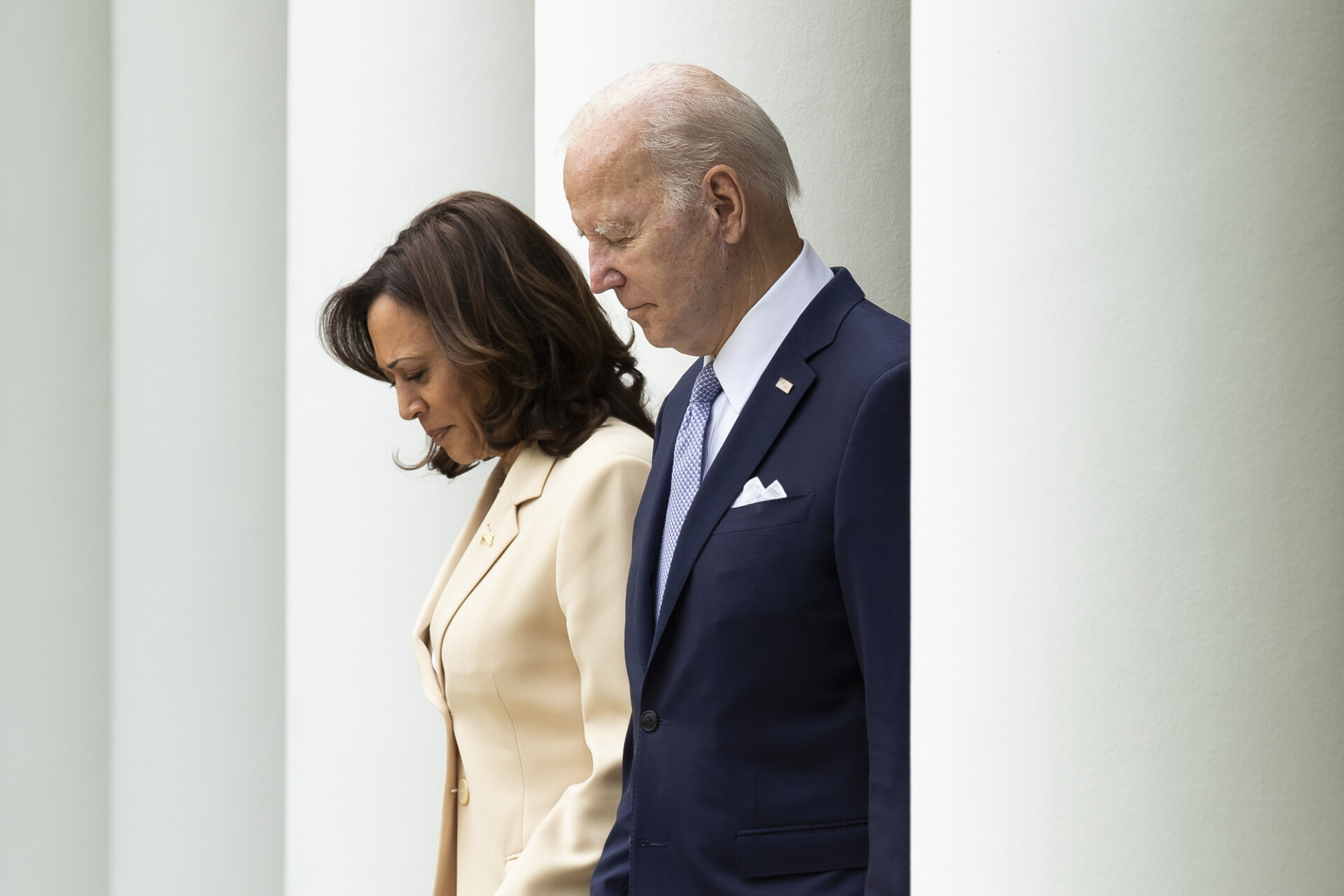In a statement worthy of a Greek tragedy, the rapid-response team for Joe Biden’s re-election campaign (and now for Kamala Harris) boasted on 24 May of the stock market’s performance under the President. It’s always risky to tie a White House administration to the stock market, and the financial whirlwind assailing Wall Street and other global trading hubs at the beginning of this week sounded almost like Nemesis repaying political hubris.
While there has been some recovery today, political observers are already likening yesterday’s market turmoil to the 2008 financial crisis. In early September 2008, the enthusiasm generated by the Sarah Palin vice-presidential pick and the Republican National Convention had catapulted John McCain to a slim polling lead over Barack Obama. Then the financial crisis pushed the GOP into the shredder. In reality, McCain always had an uphill climb against Obama; the American electorate is incredibly averse to giving three presidential terms in a row to the same political party, especially when the incumbent is as unpopular as George W. Bush was at the time.
But the financial crisis turned what could have been a hard-fought race into a rout. It also helped cause a down-ballot bloodbath. Democrats picked up eight Senate seats and over 20 seats in the House. Republican incumbents — such as Senator Gordon Smith of Oregon — who had an advantage in the summer of 2008 saw their leads disappear by November.
It might be too early to compare the current stock market pain to 2008. Stocks also endured some brutal days in 2022, but that didn’t stop Democrats from having a relatively strong midterm performance. Nevertheless, this stock shock offers a warning light to Harris’s campaign and to Democrats more generally. For years, Americans have been dissatisfied with the economy; Gallup polling from July found that only 22% of Americans rated the economy as “good” or “excellent”. And that was with some positive economic indicators, such as low unemployment and a relatively robust Dow average. If those other indicators start to sour, the American public could blame Biden and Harris as his Democratic successor.
That blame could also be visited upon battleground Democratic incumbents. Sherrod Brown is in a tight Senate reelection race in Republican-trending Ohio, and Senator Jon Tester hopes to defy political gravity yet again as he runs for re-election in Montana — a state that Trump won in 2020 by 16 points. Fears that the economy is unravelling could prompt a broader repudiation of vulnerable Democrats.
In previous cycles, Democrats had used economic uncertainty as a bludgeon against Republicans, accusing the party of wanting to slash the social safety net precisely when Americans needed it most. That argument might struggle to gain traction against the more populist iteration of the contemporary GOP. That’s because “Medi-scare” tactics are a harder sell when the Republican platform explicitly opposes cuts to entitlements. Economic unrest, meanwhile, would dovetail with the Republican critique that “Bidenomics” has failed to deliver for working families.
As seen in 2008, economic crises can sometimes spur on political realignments. With the stock market poised to enter a new period of turmoil, family bills and political majorities may both be at stake. Harris has so far relied on media-orientated “vibes” to power her rise in the polls, but events — like Nemesis — will demand their due.











Join the discussion
Join like minded readers that support our journalism by becoming a paid subscriber
To join the discussion in the comments, become a paid subscriber.
Join like minded readers that support our journalism, read unlimited articles and enjoy other subscriber-only benefits.
Subscribe